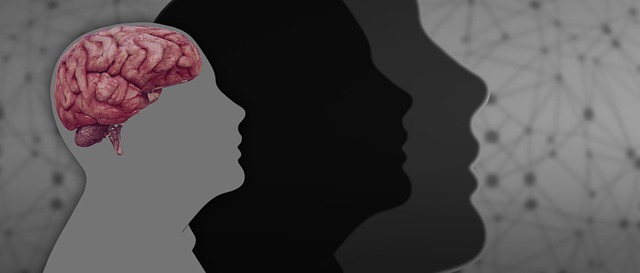Westminster Eating Disorders Therapy emphasizes emotional intelligence (EI) as a powerful tool for overcoming eating disorders. By focusing on self-awareness, interpersonal connections, and effective coping mechanisms, their integrated approach enables individuals to manage emotions, break down barriers to recovery, and build long-term mental wellness. This holistic strategy combines self-care, coaching, cultural sensitivity, and empathetic therapy, empowering clients through risk management planning and public awareness, ultimately fostering stronger communities and improved recovery outcomes.
Emotional intelligence (EI) is a powerful tool in the battle against eating disorders. This article explores the multifaceted role of EI in Westminster Eating Disorders Therapy, delving into key components like self-awareness, social skills, emotion management, and empathy. Understanding and cultivating these aspects can significantly enhance recovery outcomes, fostering healthier relationships and supportive communities. By integrating EI strategies into treatment plans, professionals in Westminster can revolutionise care for those struggling with eating disorders.
- Understanding Emotional Intelligence: A Key to Overcoming Eating Disorders
- The Role of Self-Awareness in Westminster Eating Disorders Therapy
- Enhancing Social Skills for Better Relationships and Support
- Managing Emotions Effectively: Strategies for Eating Disorder Recovery
- Practicing Empathy: Building a Compassionate Community for Recovery
Understanding Emotional Intelligence: A Key to Overcoming Eating Disorders

Emotional intelligence (EI) is a powerful tool in the journey towards overcoming eating disorders. Often overlooked as a core component of recovery, EI involves recognizing and managing one’s own emotions and understanding those of others. For individuals struggling with eating disorders, such as those seeking Westminster Eating Disorders Therapy, this can be transformative. By enhancing their EI, they develop better coping mechanisms, improve self-awareness, and foster healthier relationships—all essential elements in the path to recovery.
The integration of self-care practices, mental wellness coaching programs, and cultural sensitivity in mental healthcare practice further strengthens this approach. These strategies enable individuals to navigate complex emotional landscapes with greater ease, fostering a sense of safety and empowerment. Understanding and regulating emotions becomes less about suppressing them and more about embracing the full spectrum of human experience, which is crucial for long-term recovery and improved mental wellness.
The Role of Self-Awareness in Westminster Eating Disorders Therapy

In Westminster Eating Disorders Therapy, self-awareness is a cornerstone of treatment success. It enables individuals to recognize and understand their emotions, triggers, and behaviors, forming the basis for meaningful change. By cultivating heightened self-awareness, clients gain profound insights into their mental health struggles, breaking down the barriers that perpetuate eating disorders. This introspective process empowers them to make informed decisions about their well-being.
Within the context of Westminster Eating Disorders Therapy, risk management planning is integrated to enhance self-awareness and promote inner strength development. Public awareness campaigns play a pivotal role in this, educating both clients and mental health professionals about the nuances of eating disorders. Through these initiatives, individuals affected by eating disorders can learn to recognize warning signs early on, fostering proactive risk mitigation strategies. This holistic approach ensures comprehensive care, where self-awareness is not just taught but embraced as a vital tool for long-term recovery.
Enhancing Social Skills for Better Relationships and Support

Emotional intelligence is a powerful tool that significantly enhances our social skills and relationships. At Westminster Eating Disorders Therapy, we recognize that fostering strong interpersonal connections is crucial for mental wellness. By developing emotional intelligence, individuals can better understand and respond to others’ feelings, leading to more meaningful interactions and supportive networks. This ability allows people to navigate complex social situations with empathy, ensuring effective communication and conflict resolution.
In the context of trauma support services, emotional intelligence plays a pivotal role in building safe and nurturing environments. Mental health professionals who prioritize this skill set can create spaces where individuals feel understood and validated, encouraging them to share their experiences openly. This is particularly essential for risk management planning, as it enables professionals to anticipate and address potential triggers or relapses, ultimately promoting better outcomes for clients dealing with eating disorders or other traumas.
Managing Emotions Effectively: Strategies for Eating Disorder Recovery

Emotional intelligence plays a pivotal role in managing and overcoming eating disorders. Effective management involves recognizing and understanding one’s emotions, both positively and constructively channeling them. For those seeking recovery from eating disorders, Westminster Eating Disorders Therapy offers specialized support tailored to these complex challenges.
The process begins with developing inner strength by fostering self-awareness and emotional regulation skills. This includes learning to identify triggers, managing intense feelings, and building resilience. Healthcare providers play a crucial role here, offering guidance and strategies that incorporate cultural competency training to address diverse patient needs. Moreover, risk management planning is essential; professionals must be equipped to handle potential relapses and ensure continuous care for sustainable recovery.
Practicing Empathy: Building a Compassionate Community for Recovery

Practicing empathy is a cornerstone in building a supportive and compassionate community, particularly when it comes to recovery from eating disorders. At Westminster Eating Disorders Therapy, we understand that empathy plays a crucial role in helping individuals heal. Our approach involves fostering an environment where everyone feels heard, validated, and understood. This means going beyond simple listening; it’s about truly comprehending the unique experiences, fears, and aspirations of those struggling with eating disorders.
By practicing empathy, our therapy sessions become safe spaces for clients to express their feelings without fear of judgment. We believe this not only enhances the therapeutic process but also extends into the broader community. This compassionate approach can be a game-changer in crisis intervention guidance, conflict resolution techniques, and even burnout prevention strategies for healthcare providers who frequently encounter individuals with eating disorders. It’s a powerful tool that encourages open communication, strengthens support systems, and ultimately contributes to better outcomes for those seeking recovery.
Emotional intelligence building through practices like Westminster Eating Disorders Therapy plays a pivotal role in overcoming eating disorders. By enhancing self-awareness, social skills, emotional management, and empathy, individuals can foster compassionate communities that support recovery. These strategies not only help navigate the complex landscape of eating disorder recovery but also ensure lasting positive changes in relationships and overall well-being.














